Building Grassroot Inclusion:
Women-led Mediation Reassures, Promotes Property Rights
Written by: Serina Kirabo. Photography: Richard Mugambe.
Written by: Serina Kirabo. Photography: Richard Mugambe.
In one of Uganda’s largest districts by land size exists a long-standing resource competition that has pitted communities, households, and families against each other, and escalated human rights violations.
Kasese, located in the country’s Southwestern border region has an estimated total land area of 2,724 square kilometers.
Of these, the country’s most popular wildlife park, Queen Elizabeth National Park (QENP) and the Rwenzori mountain ranges take up 885 and 652 square kilometers respectively, while its over 810,000 residents use the remaining 1,187 square kilometers for agriculture and human settlement.
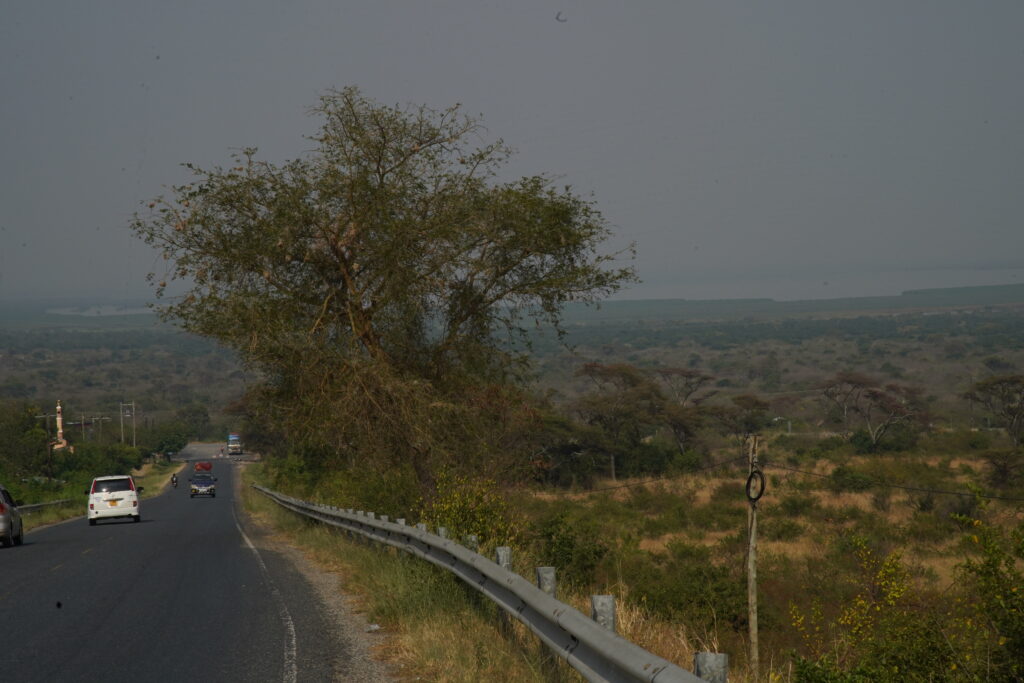
A view of Queen Elizabeth National Park a few meters from Kikorongo junction on Bwera Mpondwe road. Photo by RICHARD MUGAMBE
“We have been talking about the land issue for a very long time. Part of this land should be allocated to people for economic utilization … a national park is not enough to sustain the population,” Juliet Mbambu, a resident of Bwera near the Southwestern border town of Mpondwe.
An influential community leader, Mbambu adds that in the past 12 months, “we have witnessed about 65 land ownership cases, which we have tried to resolve at a community level.”
Further to this conflict is the influx of refugees who flee the neighboring Democratic Republic of Congo’s restive eastern region through the Mpondwe border crossing, which is downhill from Mbambu’s residential compound.
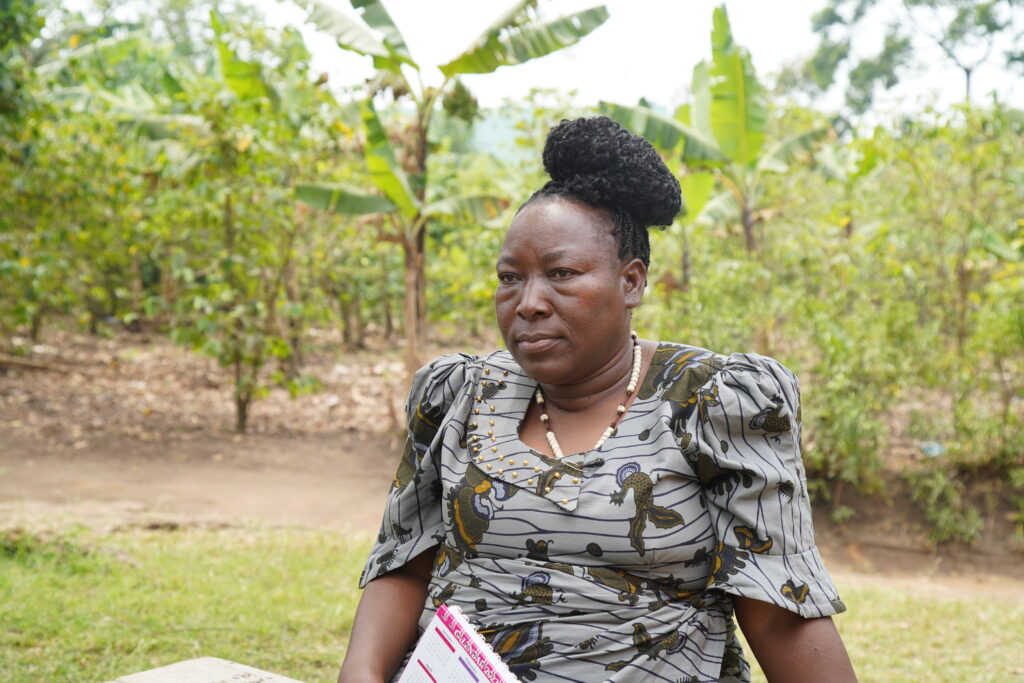
Juliet Mbambu speaks to the Solutions Now Africa team at her residence in Bwera, Kasese district. Photo by Richard Mugambe.
According to the community leadership, this resource competition melts into normative cultural attitudes and beliefs to scotch the most vulnerable members — the women, children and people with disability.
“A conflict over land ownership means a disruption in a revenue and food chain. Many families are having to marry off young girls for example for this exact reason. These are children that are supposed to be in school,” says Dorothy Rusesera, the chairperson Bwera Zone B.
These challenges could be easily addressed by the country’s justice, law, and order sector. However, human resource gaps within the judiciary have made it hard to serve rural communities.
Lower courts that serve communities like Bwera are located at district and regional level, and their bureaucratic structure makes hard for most rural persons to approach.
Uganda’s Judiciary also struggles with case backlog, with upcountry courts topping the list of the increasingly many piling cases in a recent review. A case falls under backlog when it has been in the court system for more than two years without being determined.
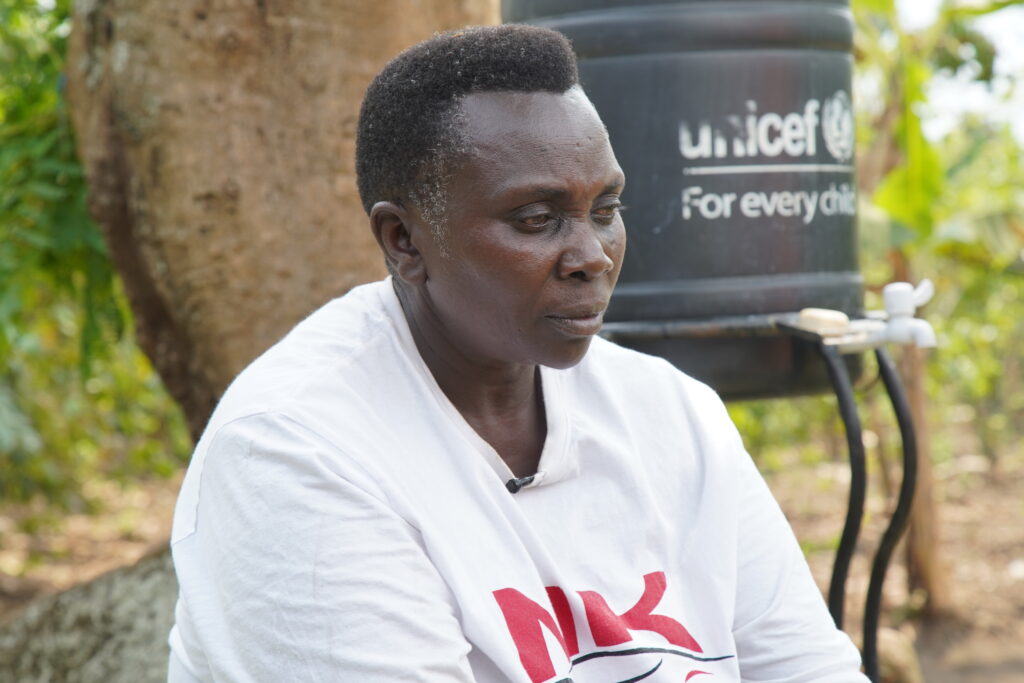
Dorothy Rusesera, the Chairperson of Bwera B Zone, Mwera Town Council, Kasese District speaks to Solutions Now Africa about the impact of the community mediation model in her community. PHOTO BY RICHARD MUGAMBE.
We can’t just sit and wait
For Bwera, Mbambu thought otherwise. In the last 12 months, she has been working with the local council, the police, the sub-county, and district leadership to build a homegrown conflict resolution mechanism to deflate tension in the community and sensitize on the rights of the underprivileged who “bare the brunt of this competition”.
She has founded Bwera United Women with Disabilities Association, a community-based organization with over 700 members, whose main objective is human rights mainstreaming in the face of conflict and mediation.
The group was inaugurated in 2020 aftermath of the covid-19 pandemic and started by “enrolling all households wherever a person with a special need lived and sensitized them about the impact of conflict on vulnerable groups.
“In our visits, we sensitized around the rights of women and children with disabilities in the face of our challenges. Because when you have a household on board, you have a whole community,” she explains.
She would later realize that this effort was by itself insufficient. Much as families had been aware of the rights of the underprivileged, the conflict was tearing them apart.
The home engagement model helped to serve the group with privileged family information “whereupon we would know what was taking place in households because people confided in us.”
“It was easier for us to know the challenges in different households, we had to find a way to defuse conflict before it could happen,” she explains.
After consultations with authorities, Mbambu, and her group sought a partnership with religious institutions, police, the sub-county community development office, and the district probation office for permission to lead and mediation and resolution efforts.
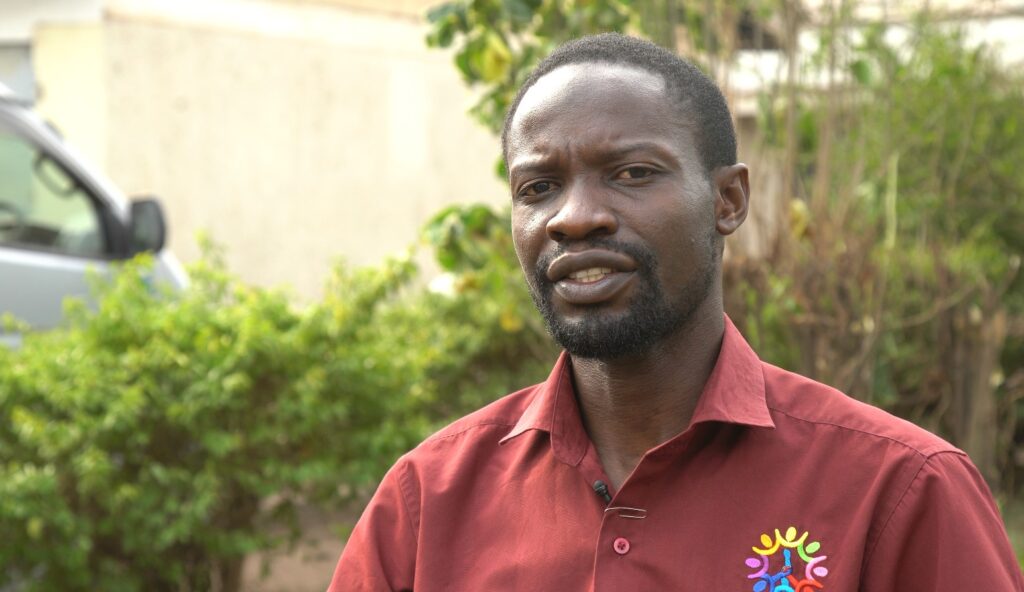
Farouk Kibaba, The Executive Director of Great Lakes Peace Institute, a non-profit organization fostering people mediation in Rwenzori Region.
She has also tapped in community social solidarity groups like saving schemes to reach out to more members.
“In our format, we sit together with conflicting parties to identify their challenges and push for an amicable way to resolve the matters. These engagements are all community-based,” she explains.
People-to-people reconciliation and mediation efforts in this region are being pioneered by Great Lakes Institute for Peace (GLIP), a non-profit organization that has done extensive research in conflict along Uganda’s volatile border.
GLIP works with different community groups in the Rwenzori subregion in civic empowerment, for human rights promotion in order to achieve a peaceful violence-free society.
“We have conducted similar training and facilitated such programs in different sub counties because of our belief that conflicts in this area can be dealt with can be solved by homegrown solutions,” Farouk Kibaba, the Executive Director of GLIP explains.
In the past 12 months, Mbambu and her team have sat through 250 cases in this community. Of these, 7 were referred to the district court system to handle and have not been resolved.
According to 2021/2022, annual Judiciary report the country has registered a 2.3% reduction in the total case backlog due to Alternative Dispute Resolution mechanisms such as plea-bargaining program, and mediation among others.
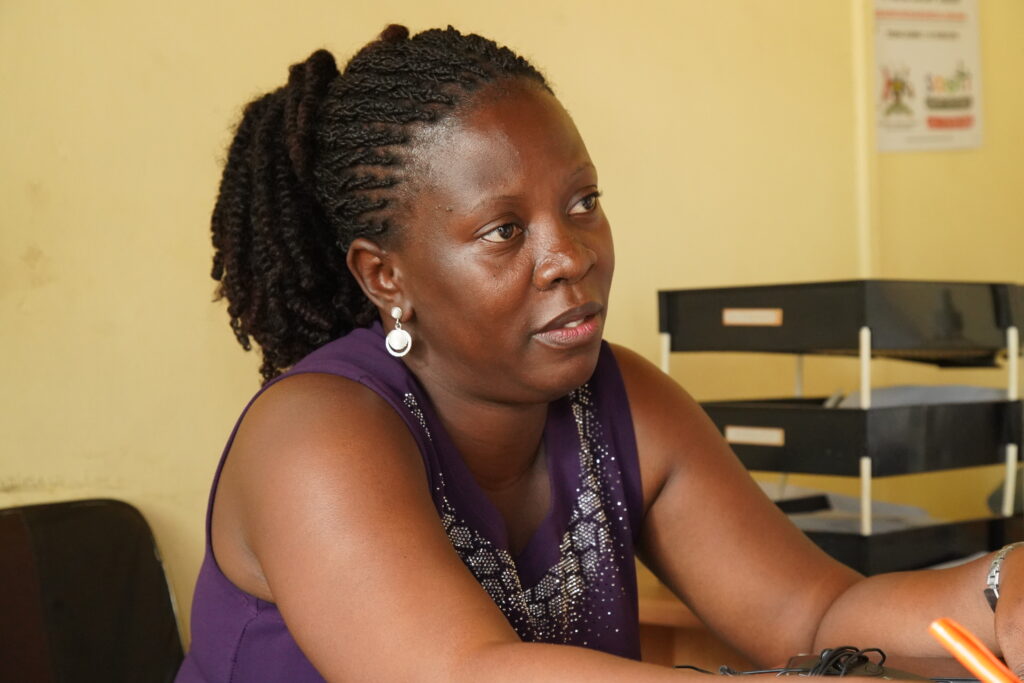
Proscovia Biira, the Social Welfare Officer at Mpondwe-Lhubiriha Town Council , Kasese District speaks during an interview with Solutions Now Africa. Photo By Richard Mugambe.
Uganda runs a public governing structure known as the Local Council (LC) system which defines political and civil administration from the community to the national level.
There are six levels of Local Councils. The LC1s, which constitute of an elected leader and nine other members are responsible for a village or, in the case of towns or cities, a neighborhood. The LC1 is the first point of civil administration and is empowered to handle civil cases,
The rest are Local Councils II, I1I, IV, and V which is at Parish, Sub-county, County, and District level respectively and are strictly for political administration.
While most conflicts or civil matters are resolved at the community level under the LC 1 committee before they are referred through the national justice, law, and order sector.
However, according to Rusesere the “Local Council conflict resolution mechanism is structured to handle conflicts as they come not before they happen and has not been sufficient in handling the communal conflict in her community.
“We have been challenged to do better because this is a model that has created harmony,” Rusesere explains.
Much as the group also struggles to document cases and also evidence gathering Mbambu says the model opens parties to the national justice system and can easily seek redress whenever they feel aggrieved.
She is now working to empower community groups to sit within these conflicts without the involvement of her office.
“Because now our people understand the challenge and know how to go about it … that is what makes me happy,” she says
The only challenge is the fact that besides finding amicable solutions to the conflict, people still find it only appropriate to submit to authority.
© 2022 - Media Challenge Initiative | All Rights Reserved .
© 2022 - Media Challenge Initiative | All Rights Reserved .